Capitalization Worksheets for Ages 5-9
14 filtered results
-
From - To
Discover our engaging Capitalization Worksheets designed specifically for children aged 5-9! These fun and interactive resources help young learners master the essential rules of capitalization through exciting activities. From identifying capital letters in sentences to practicing correct usage in their writing, our worksheets promote foundational skills essential for effective communication. Ideal for classrooms or home learning, they are tailored to accommodate a range of learning styles. Encourage your child's confidence and proficiency in writing with our colorful, kid-friendly worksheets, ensuring they're well-prepared for future literacy challenges. Explore our collection today and make learning capitalization enjoyable and effective!
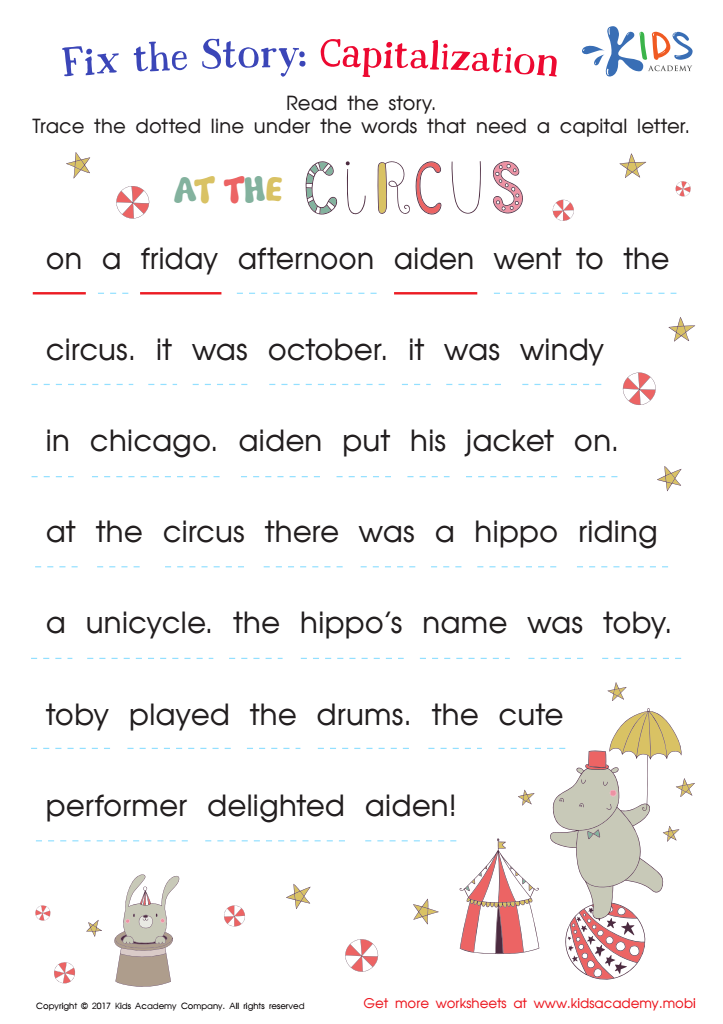

Capitalization: Fix the Story Worksheet
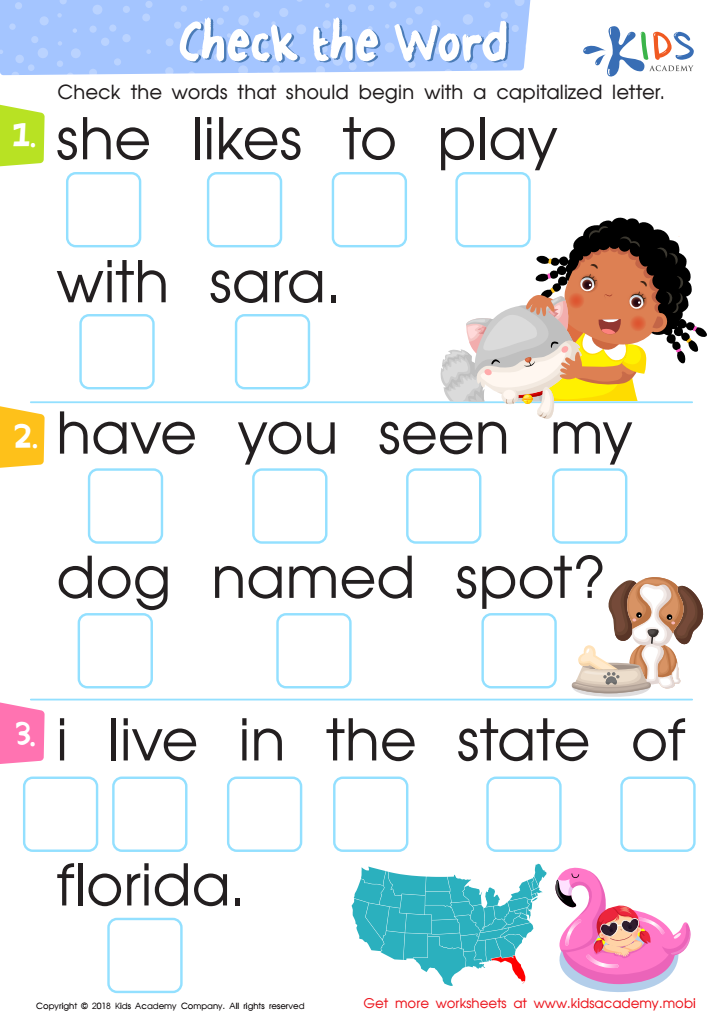

Check the Word Worksheet
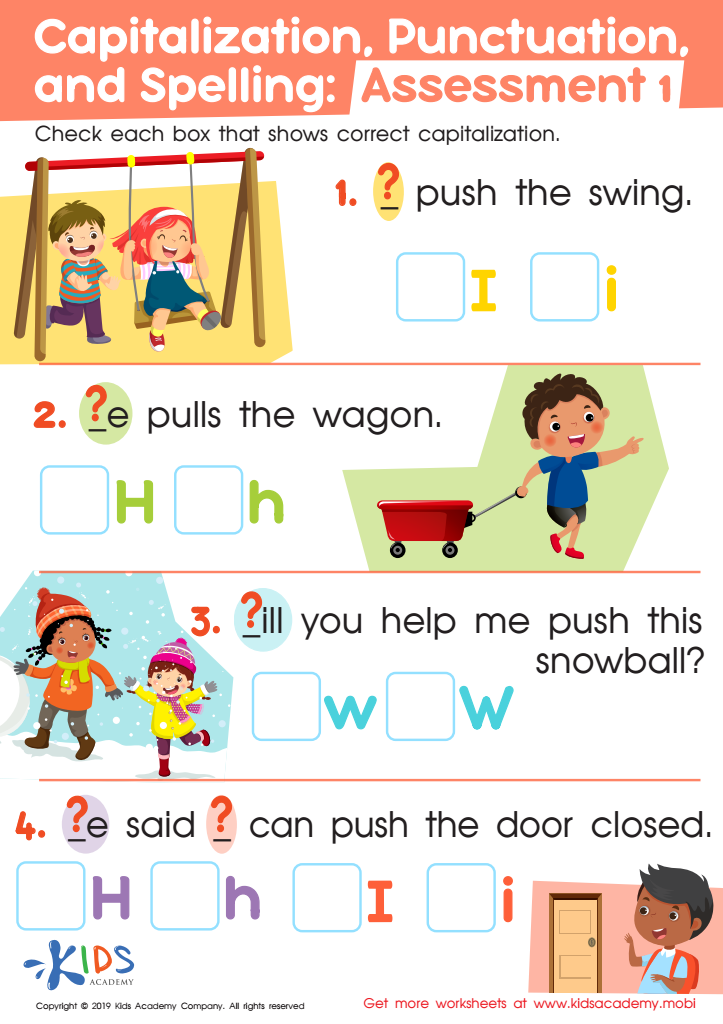

Capitalization. Punctuation. Spelling: Assessment 1 Worksheet
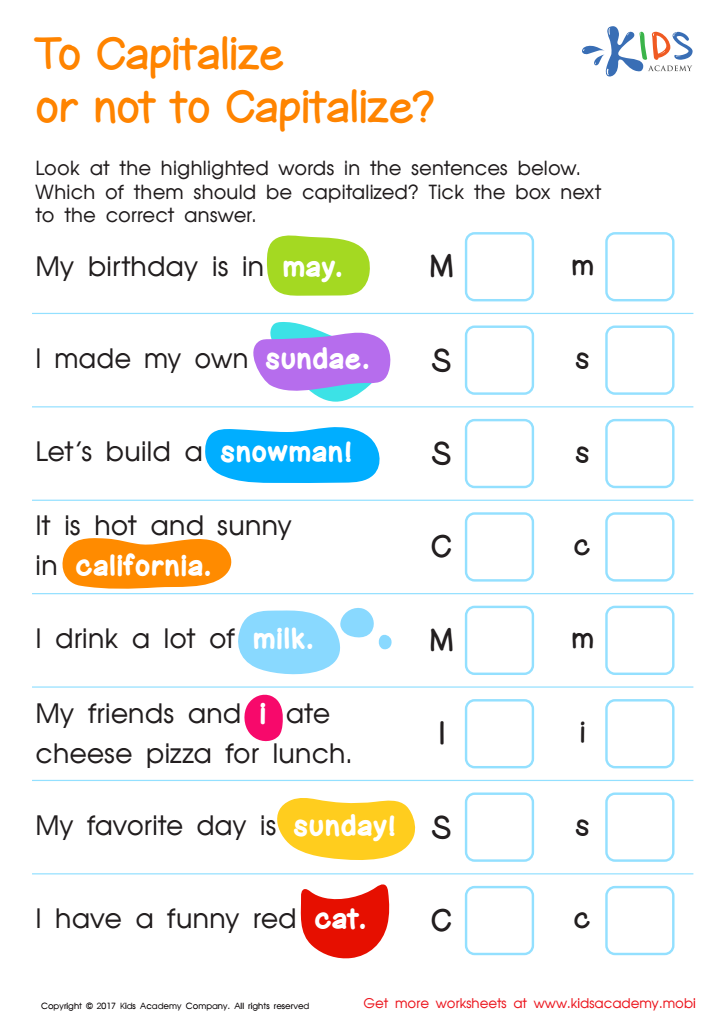

Capitalization: To Capitalize or Not? Printable
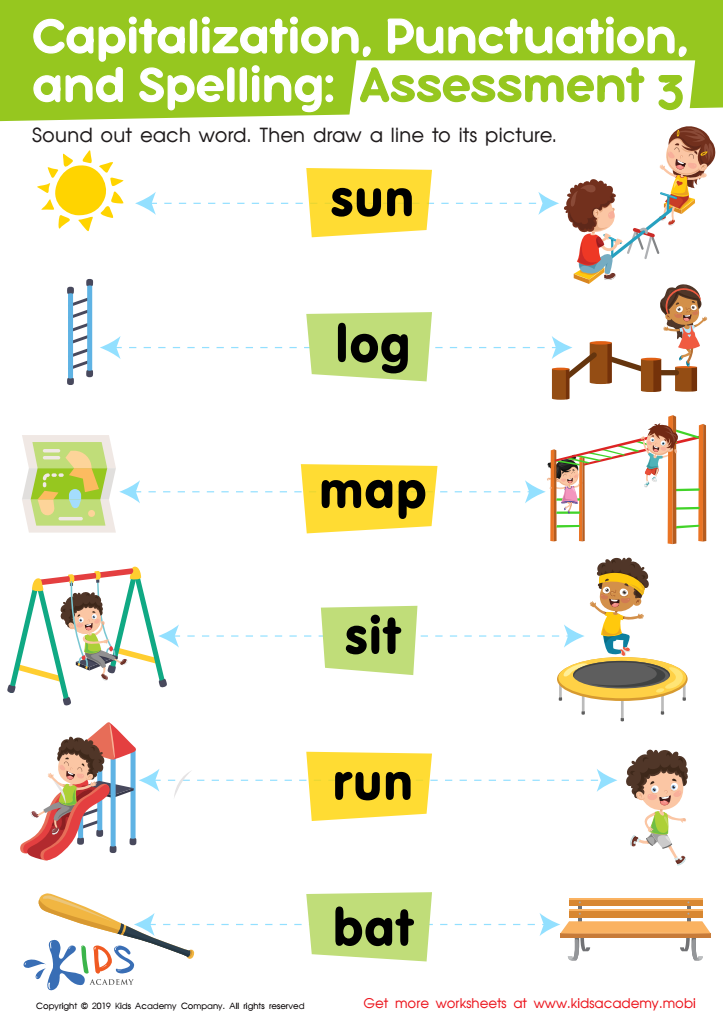

Capitalization. Punctuation. Spelling. Assessment 3 Worksheet
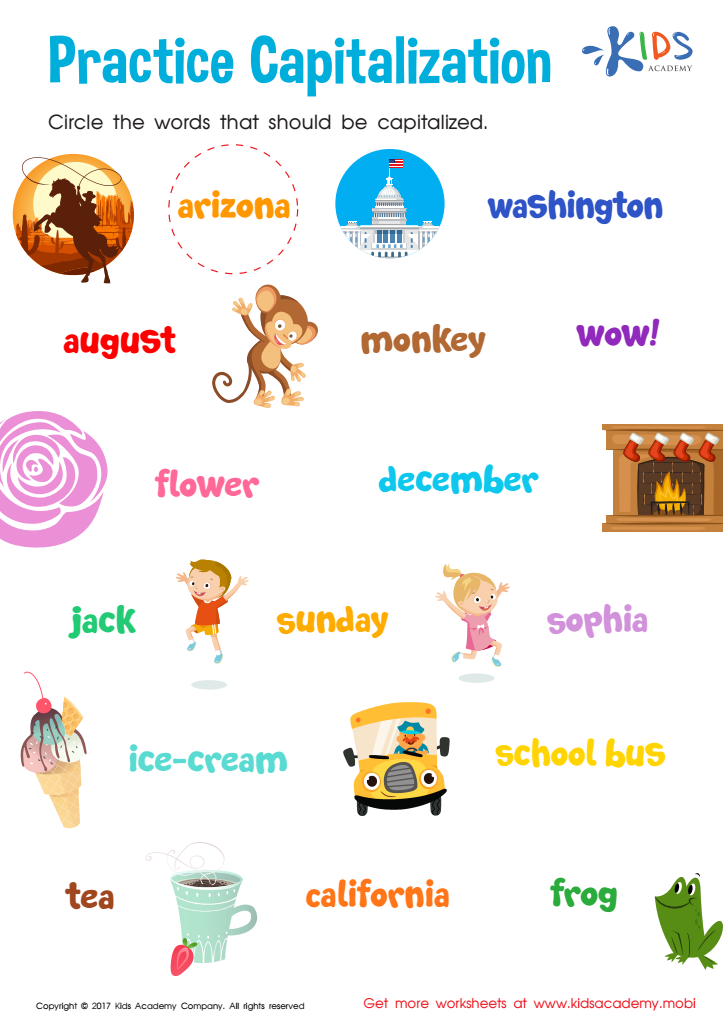

Practice Capitalization Printable
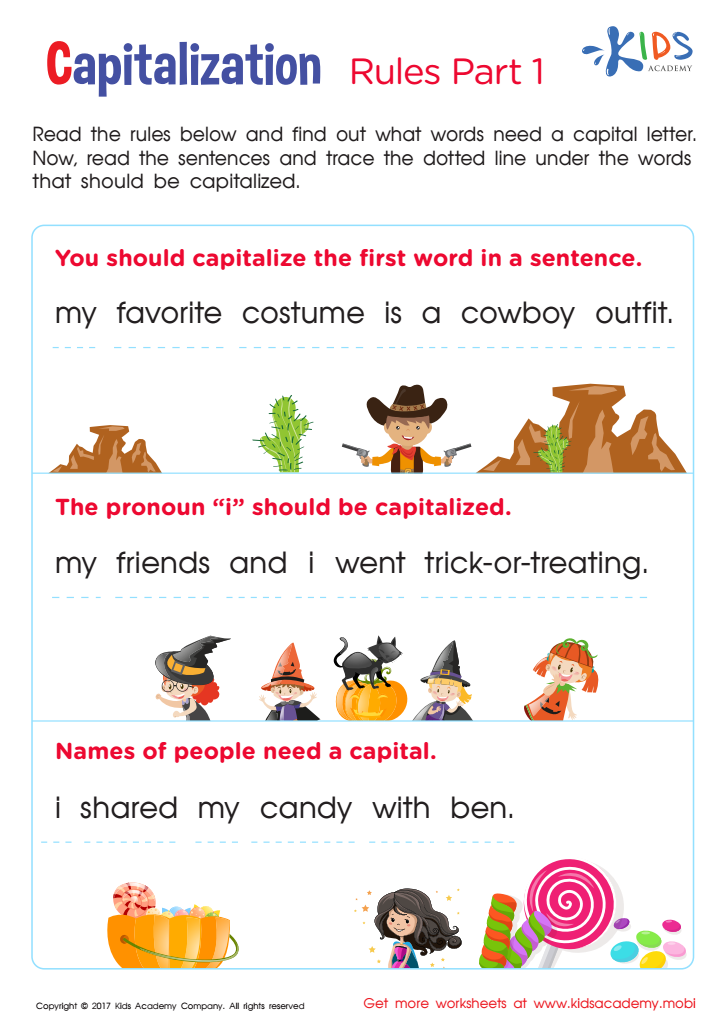

Capitalization Rules: Part 1 Worksheet
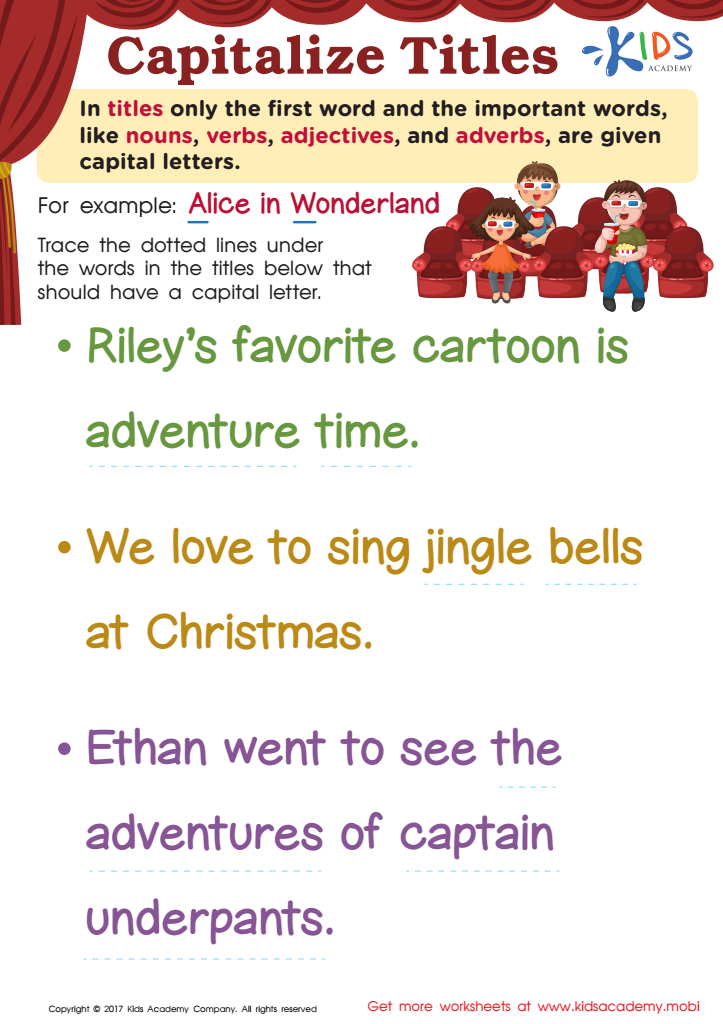

Capitalizing Titles Worksheet
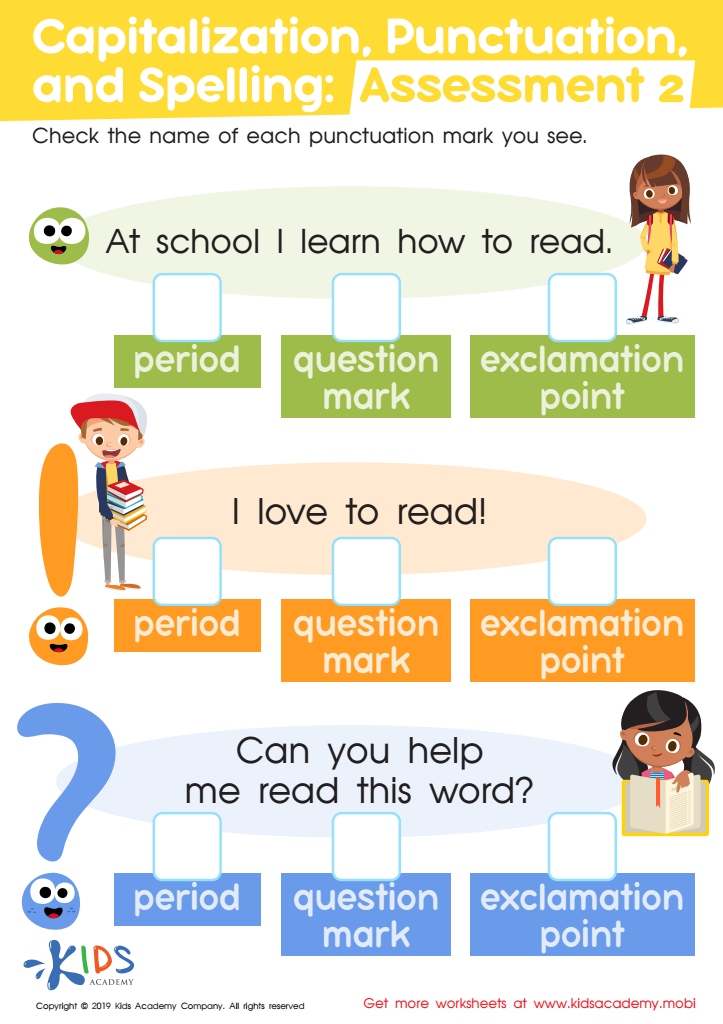

Capitalization. Punctuation. Spelling: Assessment 2 Worksheet
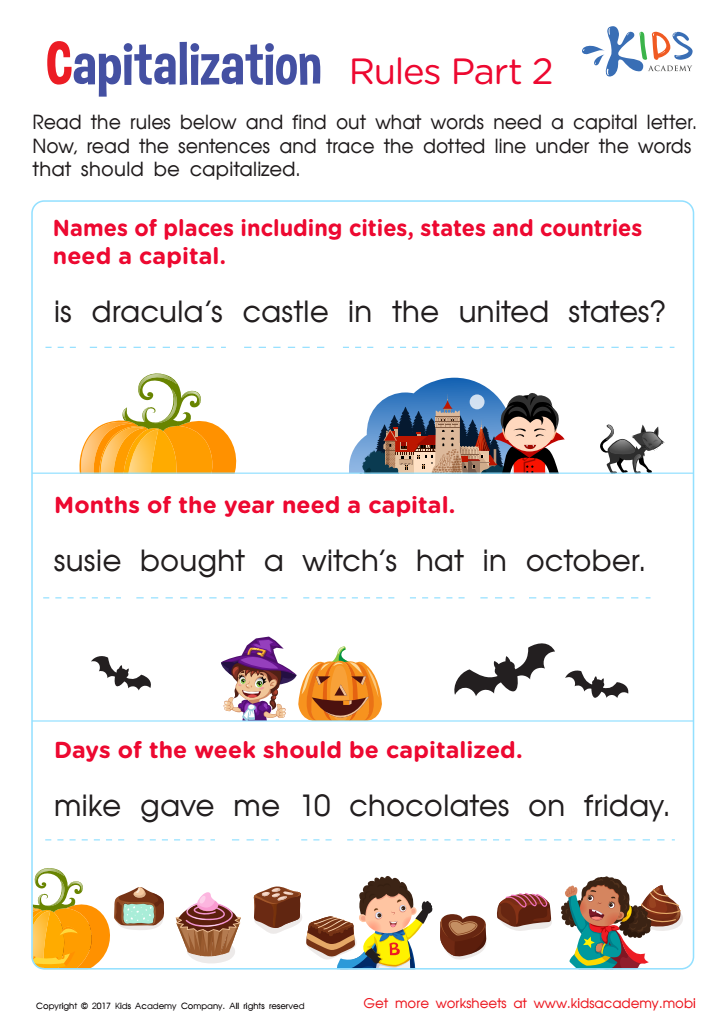

Capitalization Rules: Part 2 Worksheet
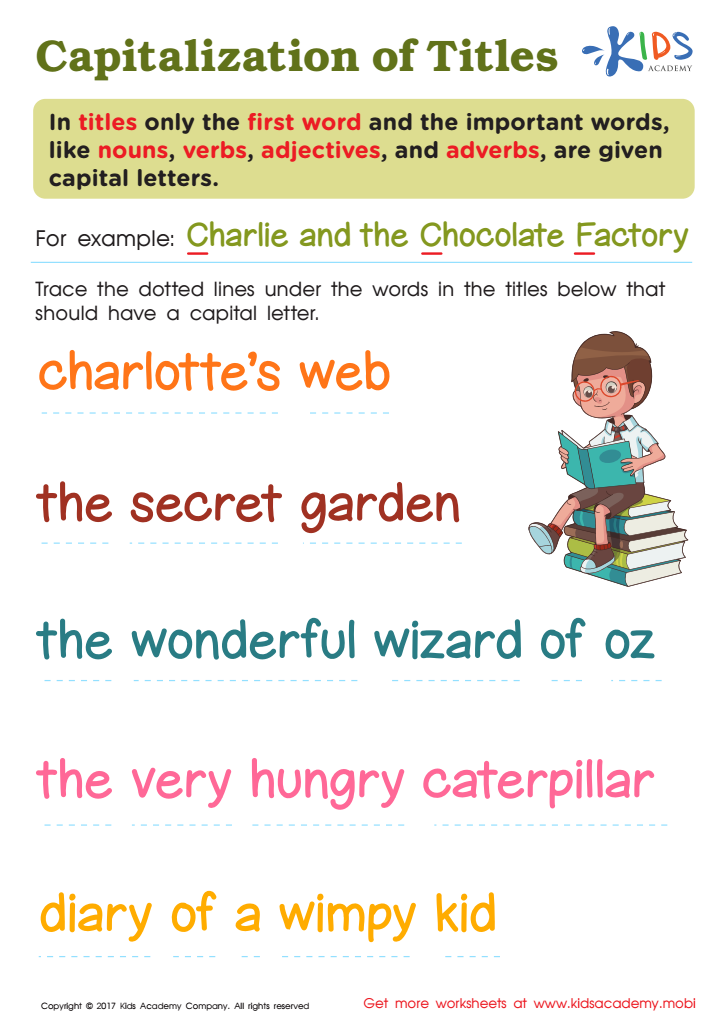

Capitalization of Titles Worksheet
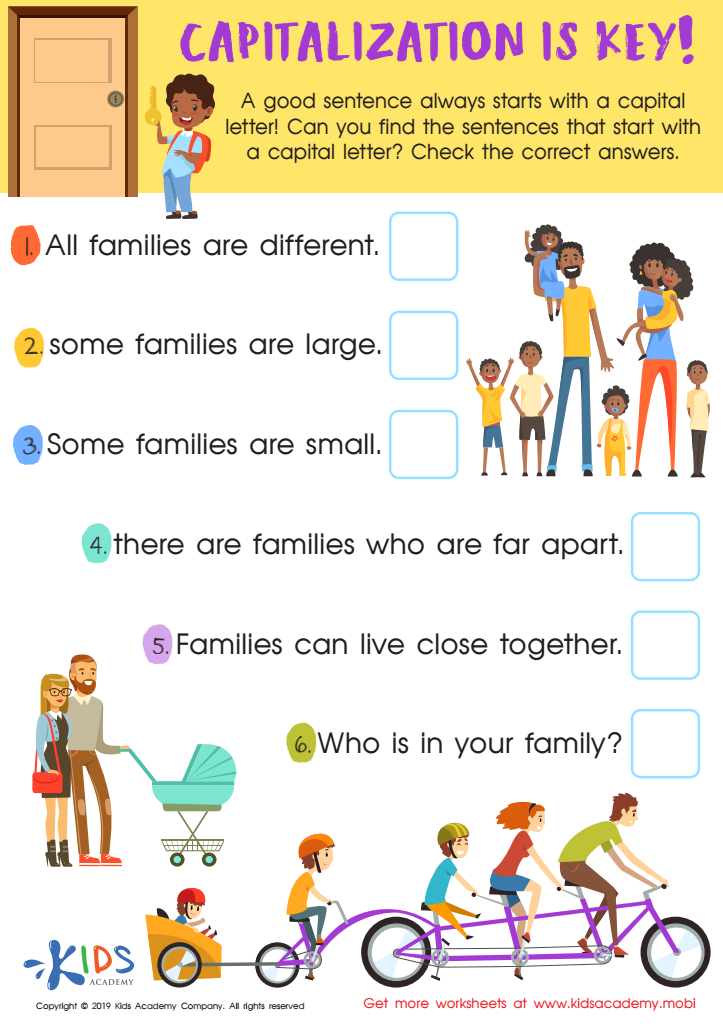

Capitalization Key Worksheet
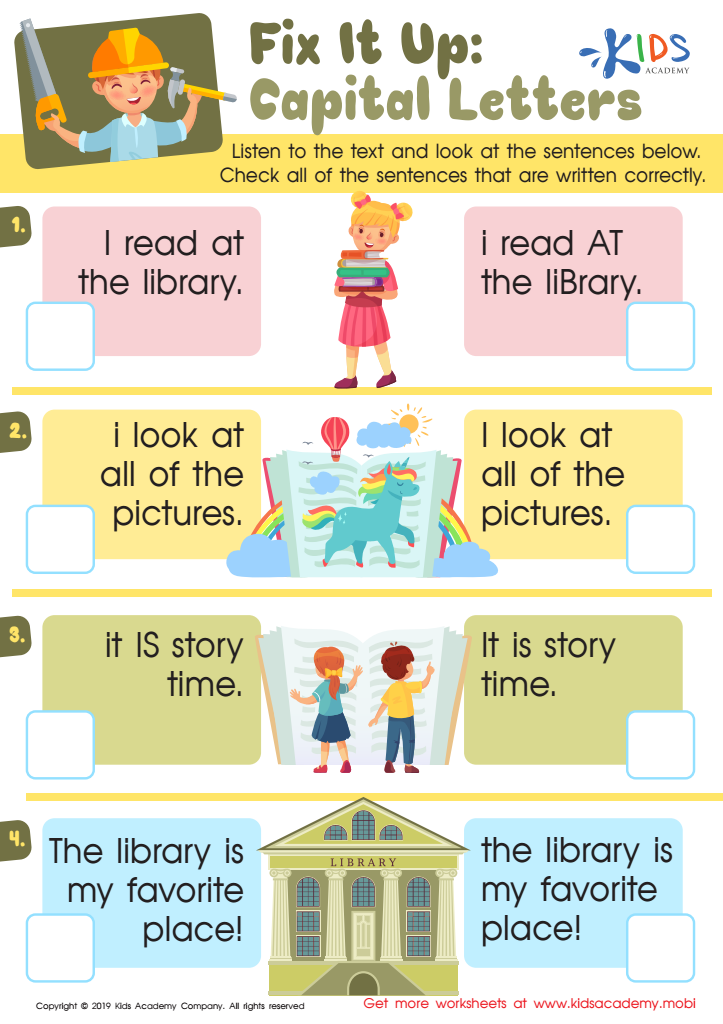

Fix Capital Letters Worksheet
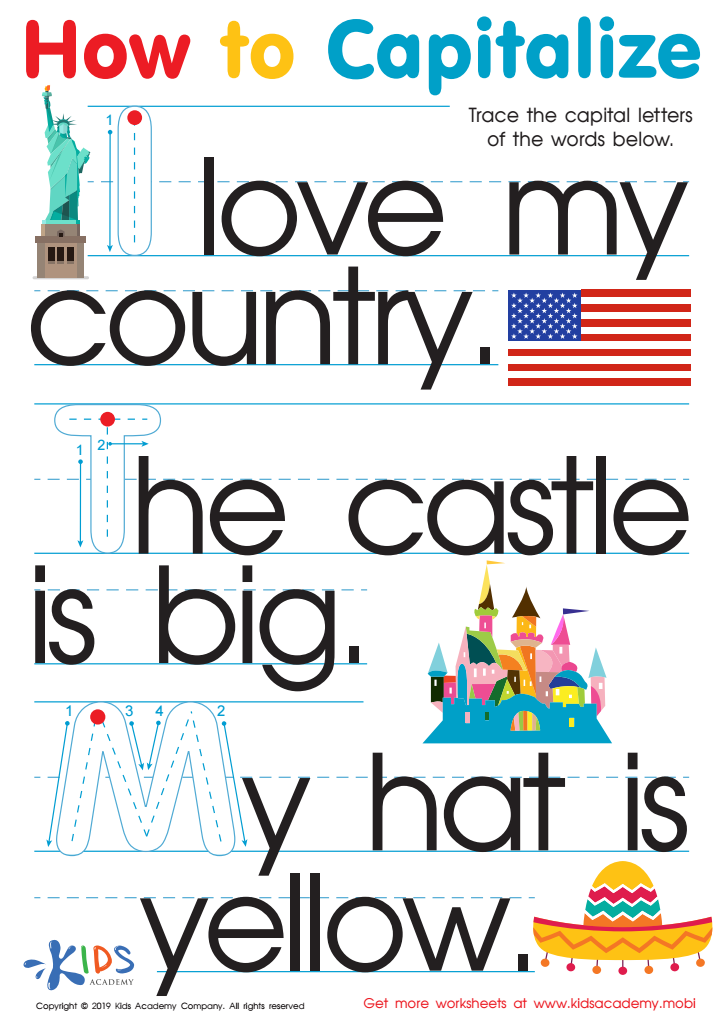

How to Capitalize Worksheet
Capitalization is an essential aspect of written language that children ages 5-9 need to master. It serves as a fundamental building block in reading and writing skills. When parents and teachers prioritize capitalization, they help children understand the rules of grammar and sentence structure. This knowledge enhances their reading comprehension and boosts their confidence in writing.
Capitalization helps differentiate between proper nouns—like names, places, and specific titles—and common nouns, clarifying meaning and context. For example, recognizing that “Wednesday” starts with a capital letter is crucial for understanding that it refers to a specific day rather than just any day of the week. Moreover, proper capitalization sets the foundation for improving punctuation skills.
Encouraging children to use capitalization correctly fosters attention to detail and promotes strong communication skills. It encourages them to express themselves clearly and effectively, whether in school assignments, personal letters, or creative storytelling. Parents and teachers should also remember that this skill builds on itself; mastering capitalization can lead to better overall writing abilities as children grow. Ultimately, nurturing an understanding of capitalization is vital for fostering literacy, enhancing a child's self-expression, and encouraging a lifelong love for reading and writing.

 Assign to My Students
Assign to My Students




















